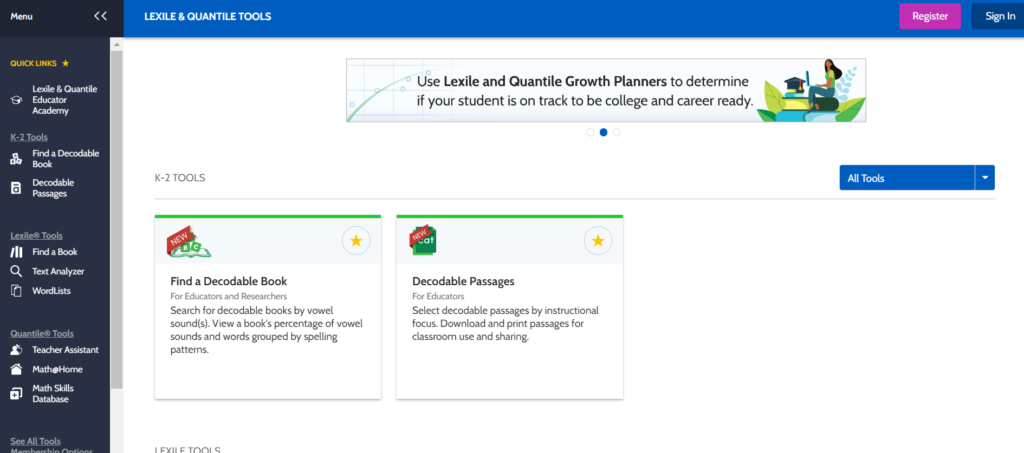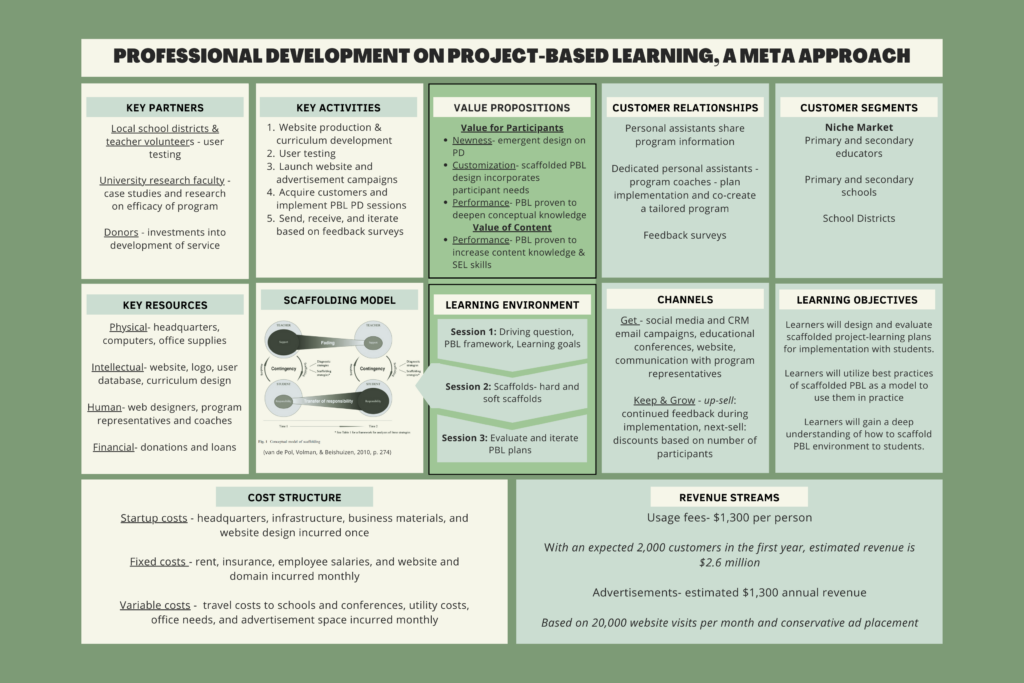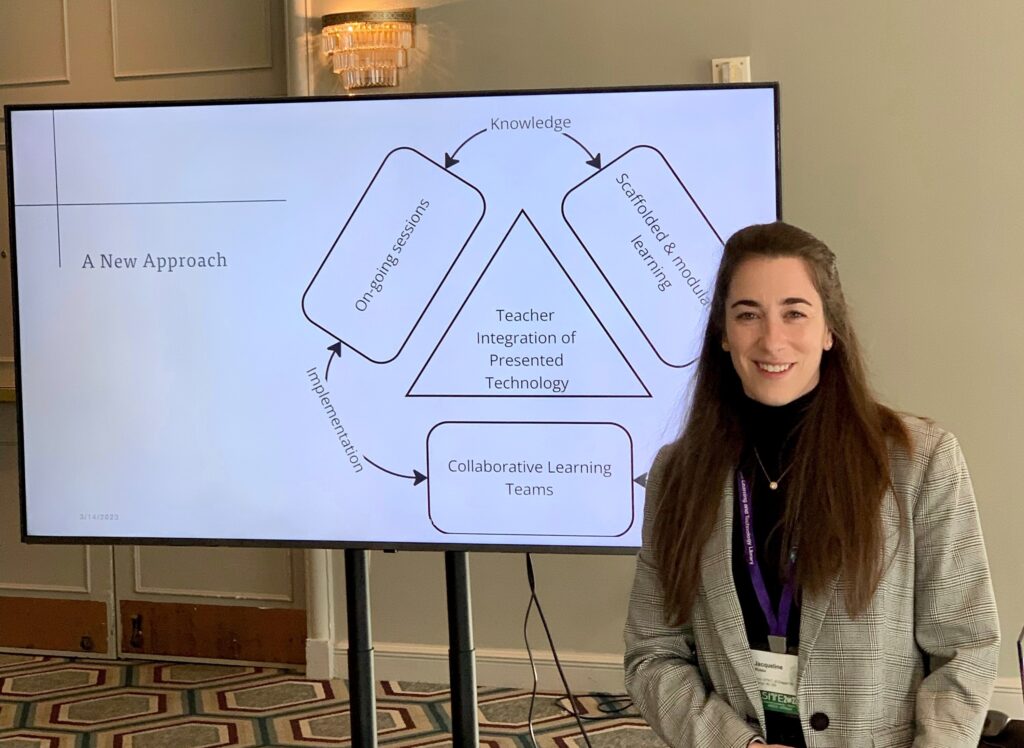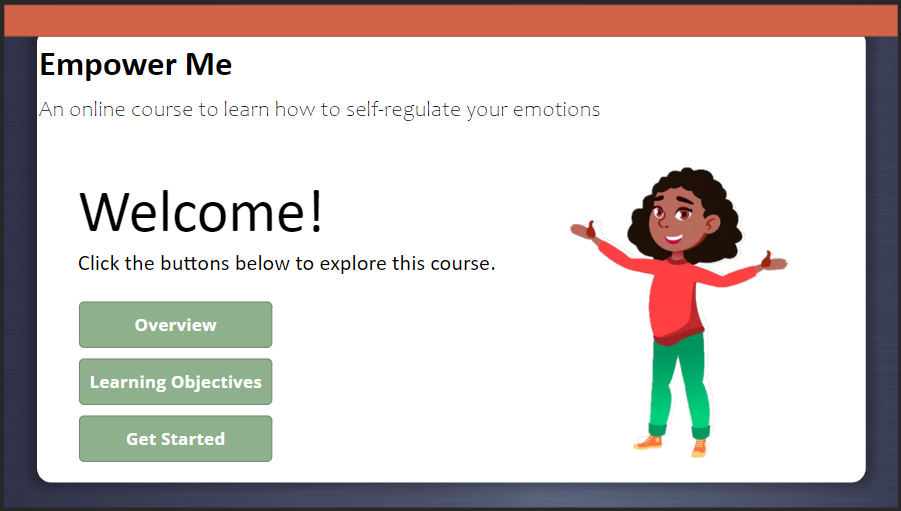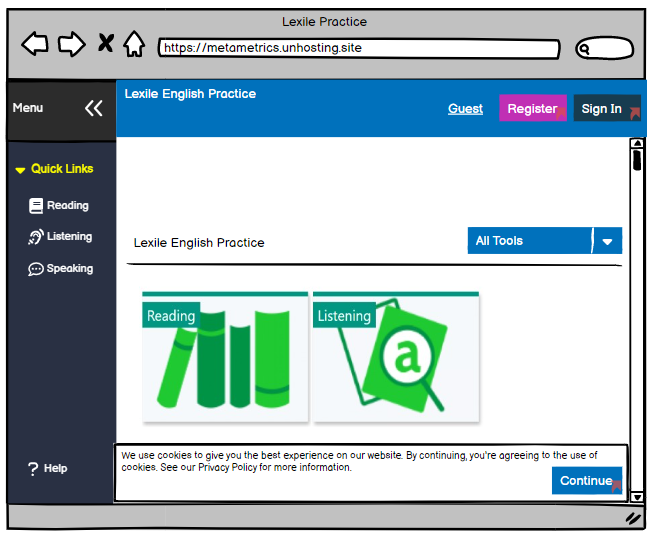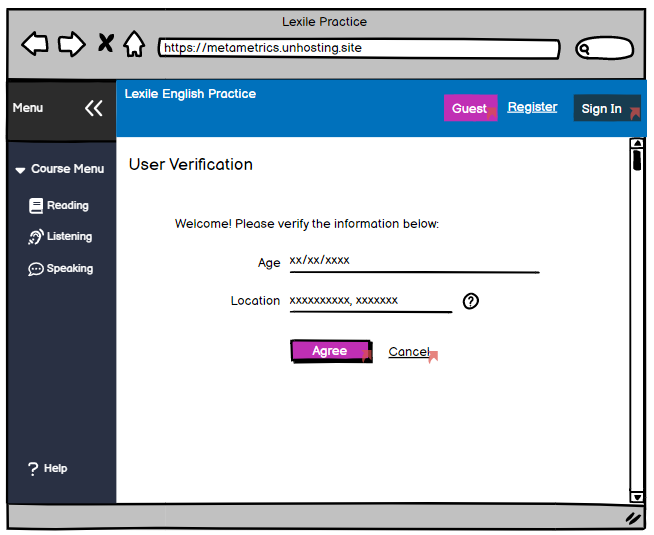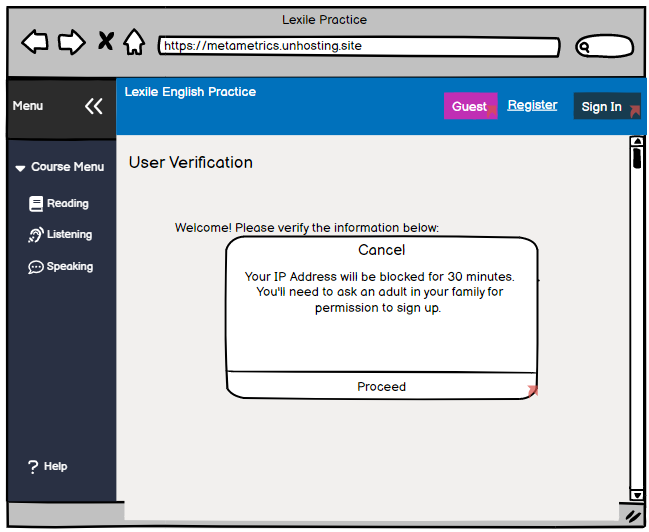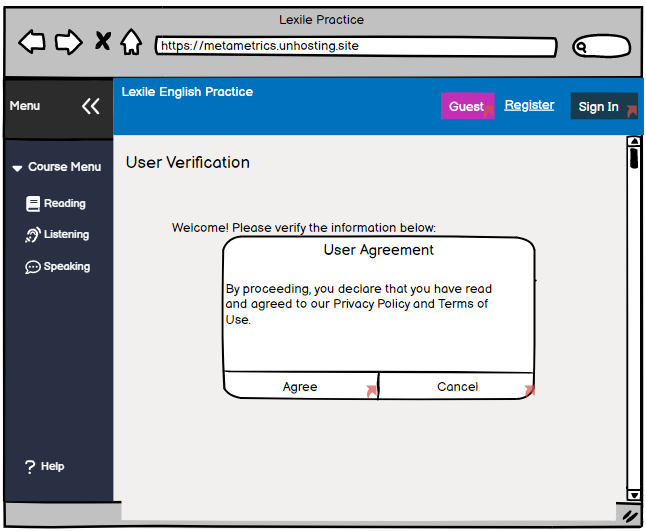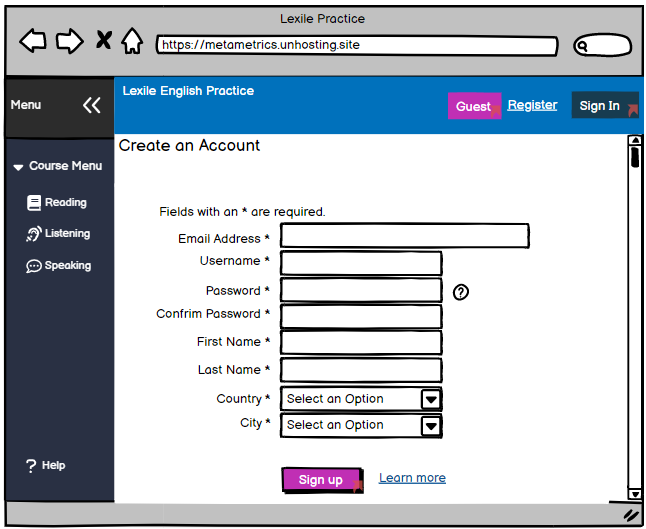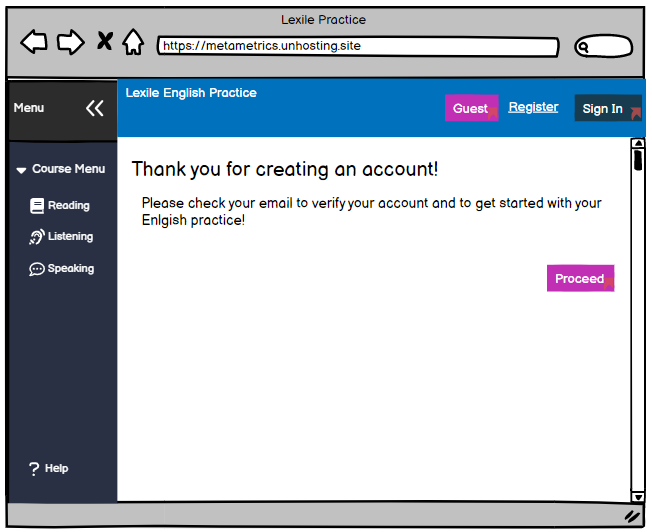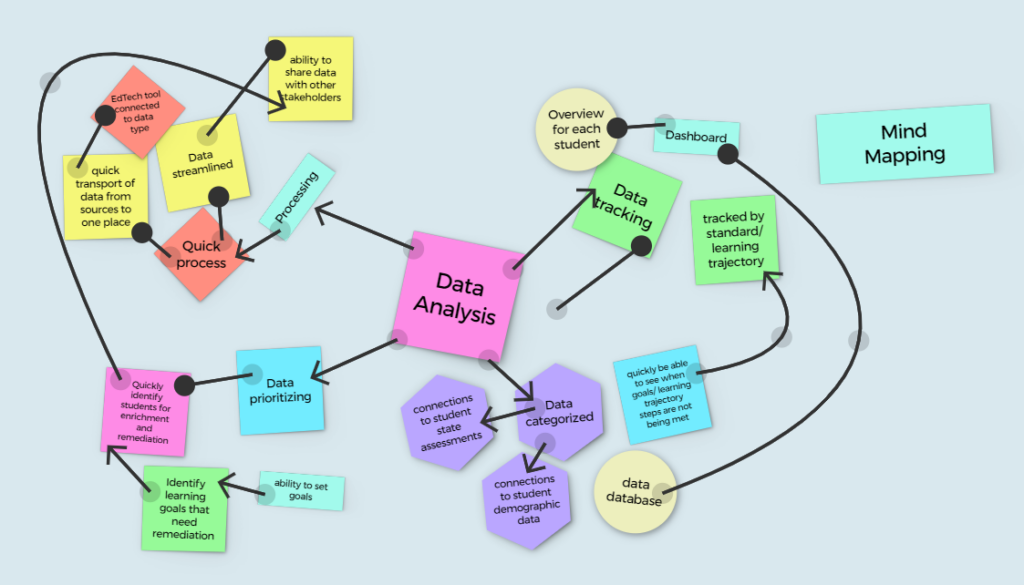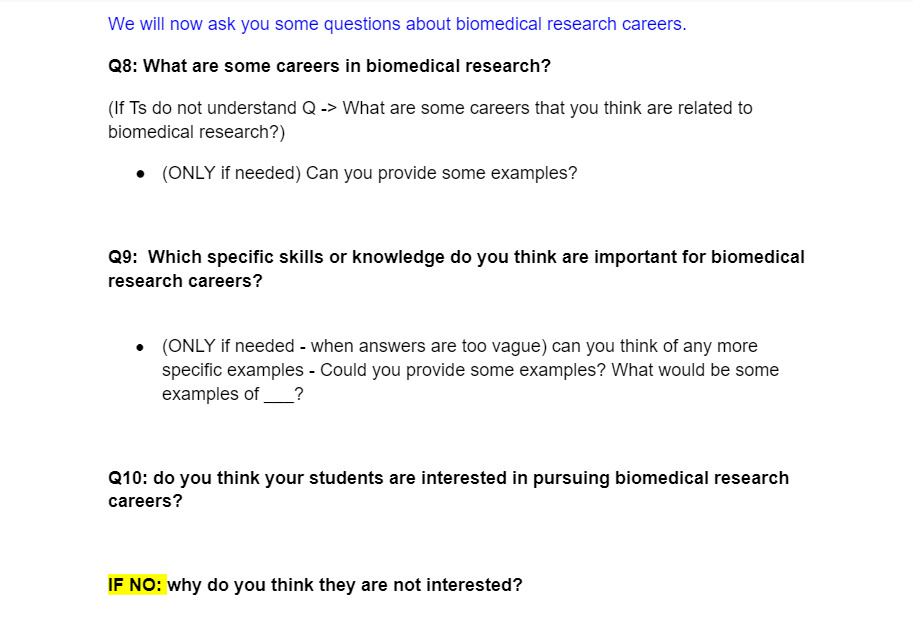In addition to my work with MetaMetrics’ International Hub, I have also collaborated with a fellow MEITE student, Megan Byers, to develop an online course for educators aimed at providing comprehensive training on their new Foundational Reading tools. Employing the principles of design thinking, we approached this multi-stage, customer-centric project with a focus on creating a product that addresses the needs and desires of our target audience.
The project began with our involvement in user testing of the innovative new tools, followed by empathy data gathering via interviews with elementary school subject matter experts. From there, we created storyboards for video and assessment modules, conducted multiple internal and external review sessions, and utilized spreadsheets to communicate progress with internal stakeholders. These efforts have helped us iterate on designs and refine the content to create a cohesive, effective online course.
Our video and assessment modules provide educators with detailed guidance on how to use the new Lexile© Find a Decodable Book and Lexile© Decodable Passages tools, offering valuable examples for how to supplement instructional planning. With the help of voice actors and Adobe Premiere Pro, we are currently in the final stages of video development, with plans to release our instructional videos and assessment modules by the end of April 2023.
This project has been an excellent example of how design thinking can be leveraged to create impactful products that meet the needs of customers. By employing each stage of the design thinking process, we have been able to create a product that is both informative and engaging, while addressing the specific needs and desires of our target audience.
Click on the image below to access and explore MetaMetrics’ Lexile & Quantile Hub where the Foundational Reading tools are located.
